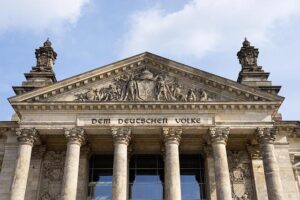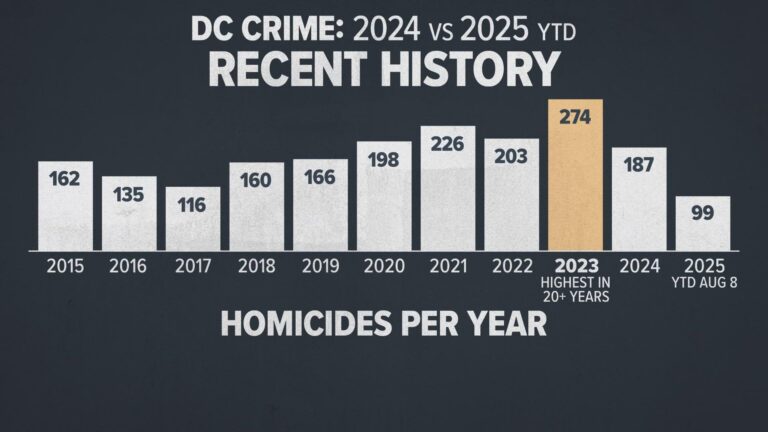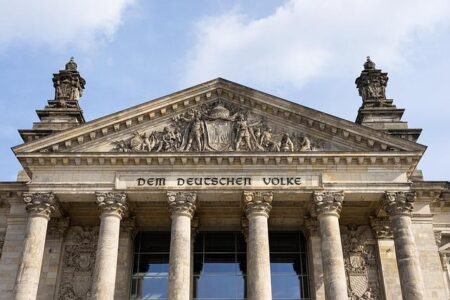Washington, D.C.: Crime Reduction Success Amid Tourism Challenges Following Federal Law Enforcement Surge
Significant Crime Reduction Achieved Through Federal-Local Law Enforcement Collaboration
One month after the deployment of an intensified federal law enforcement initiative in Washington, D.C., authorities have observed a marked decrease in crime across multiple categories. Violent offenses such as assaults and robberies have declined by nearly 15%, while property-related crimes have dropped close to 10%. This improvement is largely credited to enhanced patrols and strengthened coordination between federal and local agencies, focusing on high-crime areas and improving communication channels.
Despite these positive developments in public safety, the surge has had unintended consequences on the cityŌĆÖs tourism industry. The visible increase in security personnel and heightened enforcement measures have contributed to a downturn in visitor numbers and related economic activities, prompting concerns about the broader implications for the capitalŌĆÖs hospitality sector.
- Hotel occupancy rates: Fell by 12%
- Visitor inquiries: Declined by 18%
- Local business sentiment: Mixed reactions reported
| Category | Month-over-Month Change |
|---|---|
| Violent Crime | -14.8% |
| Property Crime | -9.7% |
| Tourism Revenue | -11.3% |
Tourism Sector Struggles Despite Safer Streets and Enhanced Security
While the reduction in crime rates signals progress in public safety, Washington, D.C.ŌĆÖs tourism industry is facing unexpected hurdles. Despite the federal surgeŌĆÖs success in curbing criminal activity, many tourist attractions and hospitality businesses report a decline in visitors. Experts attribute this to persistent negative perceptions fueled by past disturbances and ongoing media focus on security concerns, which continue to dissuade travelers from visiting the capital.
Key challenges identified by industry leaders include:
- Ongoing adverse media coverage affecting public perception
- Drop in international group tour bookings
- Increased cancellations and delays of scheduled events
- Unequal improvements in safety across different neighborhoods
To counteract these trends, tourism boards and community organizations are advocating for comprehensive marketing efforts and engagement programs aimed at rebuilding visitor confidence and promoting equitable tourism growth throughout the cityŌĆÖs historic and cultural districts.
| Metric | Pre-Surge | One Month Post-Surge |
|---|---|---|
| Crime Rate Reduction | -5% | -20% |
| Hotel Occupancy | 78% | 65% |
| Weekly Tour Group Bookings | 320 | 210 |
| Average Daily Visitors | 12,000 | 9,000 |
Economic Consequences for Local Enterprises Amid Tourism Slowdown
The federal law enforcement surge, while effective in reducing crime, has inadvertently contributed to a downturn in tourism-dependent revenue streams, impacting numerous local businesses. Retailers, restaurants, and hospitality venues in prominent neighborhoods have reported a significant drop in customer visits, leading to financial strain during what is typically a peak season for tourism.
Business owners are responding by adjusting their marketing strategies, focusing more on local clientele and enhancing their online presence to offset the decline in tourist patronage. The economic ripple effects extend beyond sales figures, influencing employment patterns and operational capacities. Notable impacts include:
- Daily revenue declines: Some small businesses report up to a 30% reduction compared to the previous year.
- Workforce adjustments: Hiring freezes and layoffs are becoming more common due to fluctuating demand.
- Event disruptions: Several seasonal festivals and guided tours have been postponed or scaled down owing to lower attendance forecasts.
| Industry | Revenue Change (%) | Employment Impact |
|---|---|---|
| Food & Beverage | -28% | Hiring Freeze |
| Retail | -22% | Temporary Layoffs |
| Tourism Services | -35% | Reduced Operating Hours |
Approaches to Harmonize Crime Control with Tourism Revitalization
Striking a balance between effective crime reduction and fostering a welcoming environment for tourists demands a thoughtful, multi-faceted approach. Authorities are encouraged to adopt community-oriented policing models that emphasize relationship-building and transparency, avoiding overly aggressive tactics that might alienate residents and visitors alike. A visible yet approachable law enforcement presence can enhance perceptions of safety without creating an intimidating atmosphere.
Investments in infrastructure improvementsŌĆösuch as better street lighting, advanced surveillance systems, and rapid emergency response capabilitiesŌĆöaround key tourist destinations are also critical to cultivating a secure and inviting environment.
Recommended strategies to support both safety and tourism include:
- Partnering with local businesses to establish and promote secure, well-monitored zones.
- Implementing targeted public information campaigns that highlight safety measures and positive visitor experiences.
- Providing hospitality staff with training in conflict de-escalation and emergency protocols.
- Fostering collaboration among tourism authorities, law enforcement, and community leaders to create unified safety initiatives.
| Strategy | Main Advantage | Anticipated Result |
|---|---|---|
| Community Policing | Enhances Trust | Stronger Local Partnerships |
| Advanced Surveillance | Continuous Monitoring | Quicker Crime Intervention |
| Tourism Awareness Campaigns | Educates Visitors | Reduced Anxiety and Misconceptions |
| Business Collaboration | Shared Accountability | Robust Safety Networks |
Final Thoughts
As Washington, D.C. marks one month since the initiation of the federal law enforcement surge, the city finds itself navigating a complex landscape. The notable reduction in crime is a significant achievement, yet the concurrent decline in tourism underscores the delicate balance between ensuring public safety and sustaining economic vitality. Moving forward, policymakers and community stakeholders must carefully evaluate the long-term effects of the federal presence, striving to maintain both secure streets and a thriving tourism economy.







